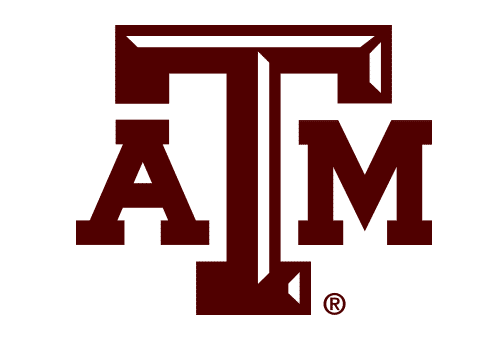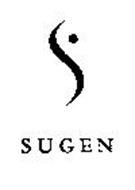预约演示
更新于:2025-05-07
Early onset of age-related macular degeneration
早发性老年性黄斑变性
更新于:2025-05-07
基本信息
别名 Early onset of age-related macular degeneration |
简介- |
关联
3
项与 早发性老年性黄斑变性 相关的药物靶点 |
作用机制 CFB抑制剂 |
最高研发阶段批准上市 |
首次获批国家/地区 美国 |
首次获批日期2023-12-05 |
靶点- |
作用机制- |
在研机构- |
在研适应症- |
最高研发阶段终止 |
首次获批国家/地区- |
首次获批日期1800-01-20 |
靶点 |
作用机制 VEGFR2拮抗剂 |
在研机构- |
原研机构 |
在研适应症- |
最高研发阶段无进展 |
首次获批国家/地区- |
首次获批日期1800-01-20 |
10
项与 早发性老年性黄斑变性 相关的临床试验CTR20220008
一项随机、对受试者和研究者设盲、安慰剂对照、多中心的概念验证研究,旨在评估LNP023在早期和中期年龄相关性黄斑变性患者中的安全性和疗效
评估LNP023阻止早期或中期AMD眼进展成新发不完全性视网膜色素上皮和外层视网膜萎缩或晚期AMD的疗效
开始日期2023-02-15 |
申办/合作机构 |
NCT04776031
Evaluation of the R:GEN Laser System as an Intervention in Subjects With Early Stages of Age Related Macular Degeneration (AMD) for Safety and Exploratory Efficacy Outcomes
The purpose of this study is to assess the safety and tolerability of the R:GEN Laser System in subjects with the early stages of age-related macular degeneration.
开始日期2021-02-15 |
申办/合作机构- |
ChiCTR2000039877
Study on the characteristics of intestinal microecological community and its correlation with syndromes in patients with early age-related macular degeneration (AMD)
开始日期2020-12-01 |
申办/合作机构- |
100 项与 早发性老年性黄斑变性 相关的临床结果
登录后查看更多信息
100 项与 早发性老年性黄斑变性 相关的转化医学
登录后查看更多信息
0 项与 早发性老年性黄斑变性 相关的专利(医药)
登录后查看更多信息
267
项与 早发性老年性黄斑变性 相关的文献(医药)2025-03-01·Acta Biomaterialia
Development of self-healing hydrogels to support choroidal endothelial cell transplantation for the treatment of early age related macular degeneration
Article
作者: Steffen, Hailey J ; Mullins, Robert F ; Tucker, Budd A ; Han, Ian C ; Meyering, Emily E ; Renze, Lauryn J ; Mulfaul, Kelly ; Pandala, Narendra G ; Stone, Edwin M
2025-03-01·European Journal of Ophthalmology
Association of macular pigment optical density with plasma macular carotenoids levels and serum lipids in South Indian healthy volunteers and patients with early age-related macular degeneration
Article
作者: Panneerselvam, Bala ; Uduman, Mohammed Sithiq ; Senthilkumari, Srinivasan ; Rajendren, Anand
2025-03-01·Graefe's Archive for Clinical and Experimental Ophthalmology
Association between axial length and uveitis
Article
作者: Goto, Hiroshi ; Ogawa, Marina ; Usui, Yoshihiko ; Tsubota, Kinya
1
项与 早发性老年性黄斑变性 相关的新闻(医药)2023-05-24
iPredict AI Eye Screening System is an automated software as a medical device that offers AMD screening, including retinal imaging and rapid reporting of actionable results
iPredict can efficiently and accurately screen AMD in people over 50 years of age. (Credit: Marc Schulte on Unsplash)
Eye care solutions provider iHealthScreen has announced the US Food and Drug Administration (FDA) submission for artificial intelligence (AI)-based iPredict system, designed for early diagnosis of age-related macular degeneration (AMD).
iPredict AI Eye Screening System is an automated software as a medical device. It offers AMD screening, including retinal imaging and rapid reporting of actionable results.
According to iHealthScreen, primary care and various speciality practices can use the system to screen AMD efficiently and accurately in people over 50 years of age and refer them to an ophthalmologist.
The iPredict AI System screens the high-resolution photographs of the patient’s eyes once they have been uploaded. It then provides the findings of the screening in a fully automated report in less than 60 seconds.
Designed for use in clinics, hospitals, or other healthcare facilities, the iPredict automated report may also suggest a follow-up visit in one year as per the standards of care.
The eye care solutions provider said that the entire process can be completed in five minutes.
iHealthScreen conducted a prospective trial in the general population to evaluate the product’s accuracy, sensitivity, and specificity.
In the study, the iPredict-AMD device showed a sensitivity of 86.86% and a specificity of 94.13%.
iHealthScreen founder and CEO Alauddin Bhuiyan said: “This is a major milestone for iHealthScreen. iPredict eye disease diagnostic tools can help prevent blindness for millions of people and save insurers countless millions of dollars in avoidable healthcare cost.”
In the FDA 510(k) application, the company proposed that iPredict-AMD is indicated for use by healthcare providers to automatically detect early age-related macular degeneration (mteAMD) in adults above 50 years of age who have not been previously diagnosed with Late AMD.
Additionally, it is indicated for use with the DRSPlus colour fundus camera in both primary care and eye care settings, the eye care solutions provider said.
分析
对领域进行一次全面的分析。
登录
或

生物医药百科问答
全新生物医药AI Agent 覆盖科研全链路,让突破性发现快人一步
立即开始免费试用!
智慧芽新药情报库是智慧芽专为生命科学人士构建的基于AI的创新药情报平台,助您全方位提升您的研发与决策效率。
立即开始数据试用!
智慧芽新药库数据也通过智慧芽数据服务平台,以API或者数据包形式对外开放,助您更加充分利用智慧芽新药情报信息。
生物序列数据库
生物药研发创新
免费使用
化学结构数据库
小分子化药研发创新
免费使用


